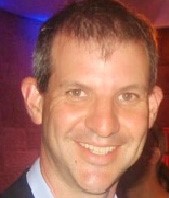
Voices

Changed Yom Hashoah format adds valuable new dimension
JEFF KATZ
This year, for the first time, the ceremonies in Johannesburg and Cape Town consisted of two parts, one with a cultural-educational focus, followed shortly thereafter by the more traditional ceremony.
The new format was introduced in response to objections from certain sectors of the community that, in deference to Orthodox sensibilities, the programme up until then had excluded women as solo singers.
Through the two-part structure, we are now able to address these concerns by including women singing solo in the first part of the programme while not taking anything away from the traditional Yom Hashoah format with which all members of our community feel comfortable.
Despite the considerable extra work that it entails for our Johannesburg and Cape Town branches, it is a solution that not only ensures that the all-important principle of communal unity is maintained on this special day, but which has added a valuable new dimension to the way the Holocaust is commemorated in this country.
For our keynote speaker in Johannesburg and Durban this year, we were privileged to have Don Krausz, a survivor whose outstanding work both in terms of testifying to what he experienced during those harrowing times and as an educator on the Holocaust in general, has made him a revered household name in our community.
The Johannesburg programme also included Rabbi Yossy Goldman, who spoke movingly of how his late father, who likewise survived the Holocaust but lost his entire family, never wavered in his staunch Jewish faith and after the war succeeded in building a thriving Jewish family every bit as committed to rebuilding what had been lost.
Over the years, Don Krausz has spoken to tens of thousands of people, Jewish and non-Jewish – including to over 500 school groups – and I have personally been privileged to spend some time alone with him, learning from him. In doing so, he has continually stressed that what made the Holocaust possible was not that those who perpetrated it were intrinsically evil, but because they had been indoctrinated to the point that they no longer regarded their victims as being human.
The fundamental message that we and all succeeding generations, need to take is therefore never to dehumanise people, whether on the basis of race, ethnicity, religion or any other such grounds.
Through commemorating and teaching about the Holocaust, we remind ourselves of what this kind of rhetoric can lead to, and strengthen our resolve to do everything that we can to prevent such horrors from happening again.
History also demonstrates all too starkly that bigotry, hatred and deceit, thrive in societies experiencing high levels of political, social and economic turmoil. It was in just such an environment that the Nazis were able to seize power in the first place. For our part, we must ensure that we never lose our sense of ethics and morality, particular in these times of duress that our country is currently experiencing.
Listen to Charisse Zeifert on Jewish Board Talk, 101.9 ChaiFM every Friday 12:00-13:00




